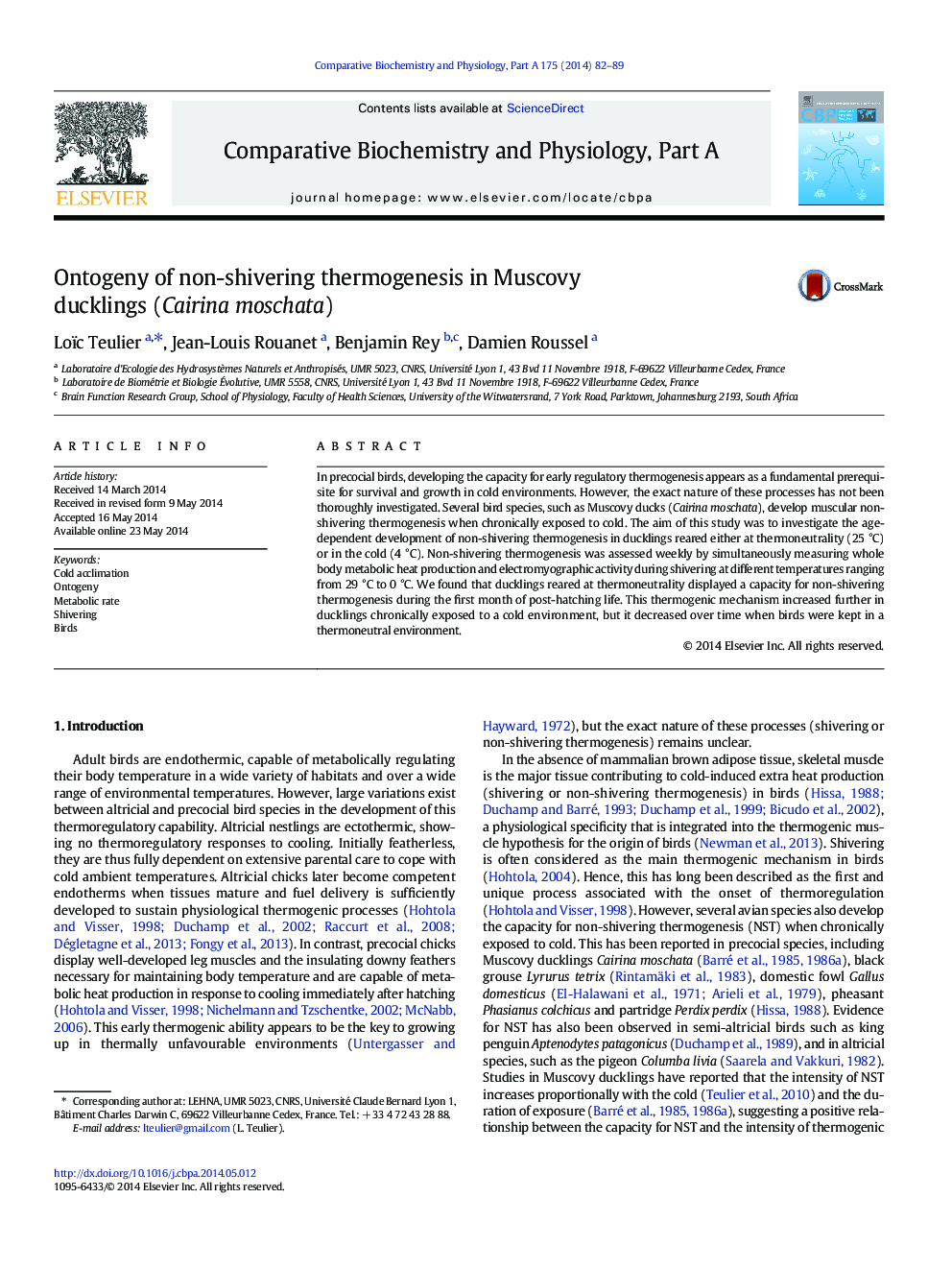| Article ID | Journal | Published Year | Pages | File Type |
|---|---|---|---|---|
| 8318624 | Comparative Biochemistry and Physiology Part A: Molecular & Integrative Physiology | 2014 | 8 Pages |
Abstract
In precocial birds, developing the capacity for early regulatory thermogenesis appears as a fundamental prerequisite for survival and growth in cold environments. However, the exact nature of these processes has not been thoroughly investigated. Several bird species, such as Muscovy ducks (Cairina moschata), develop muscular non-shivering thermogenesis when chronically exposed to cold. The aim of this study was to investigate the age-dependent development of non-shivering thermogenesis in ducklings reared either at thermoneutrality (25 °C) or in the cold (4 °C). Non-shivering thermogenesis was assessed weekly by simultaneously measuring whole body metabolic heat production and electromyographic activity during shivering at different temperatures ranging from 29 °C to 0 °C. We found that ducklings reared at thermoneutrality displayed a capacity for non-shivering thermogenesis during the first month of post-hatching life. This thermogenic mechanism increased further in ducklings chronically exposed to a cold environment, but it decreased over time when birds were kept in a thermoneutral environment.
Related Topics
Life Sciences
Biochemistry, Genetics and Molecular Biology
Biochemistry
Authors
Loïc Teulier, Jean-Louis Rouanet, Benjamin Rey, Damien Roussel,
